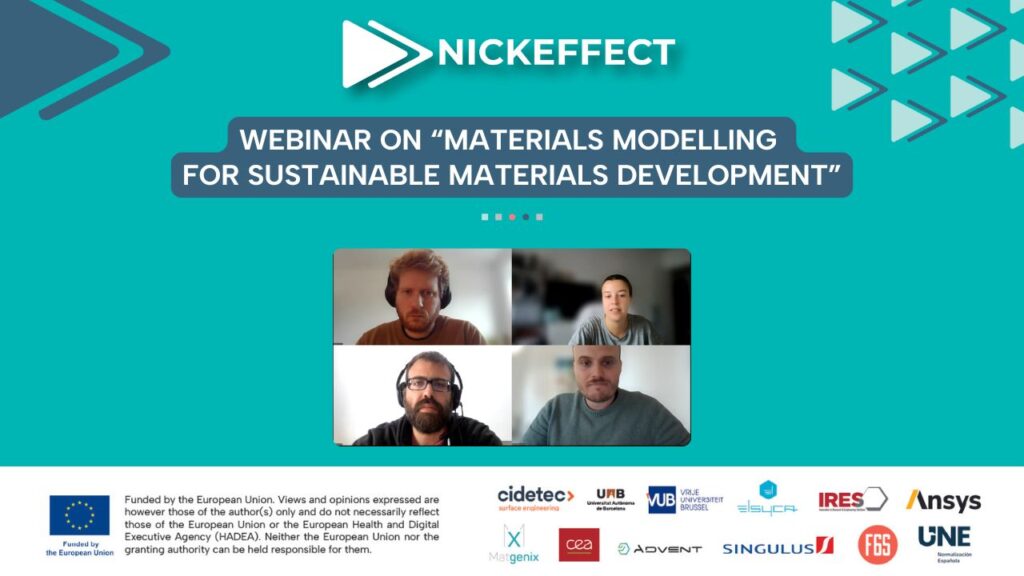The joint “Materials Modelling for Sustainable Materials Development” Webinar, hosted by NICKEFFECT and FreeMe on October 22nd, successfully demonstrated how advanced computational tools are rapidly accelerating the creation of sustainable materials and supporting the transition to a greener economy. The online event showcased practical applications of modelling to replace toxic and critical raw materials (CRMs) and optimize manufacturing processes.
The NICKEFFECT project, presented by Guillaume Brunin (from Matgenix), focused on using Nickel to replace costly and imported Platinum Group Metals (PGMs) in applications like catalysis and digital storage.
- Process optimization with active learning: Matgenix uses Active Learning (Machine Learning, ML) to optimize the complex electrodeposition process of nickel-tungsten films for catalysis. By defining a global performance score and iteratively suggesting new experiments, the ML model efficiently guided partners (UAB) to discover the best-performing film among the tested samples, demonstrating a powerful, generalizable tool for manufacturing optimization.
- Fundamental insights via atomic modelling: The project employed Density Functional Theory (DFT) and Machine-Learned Interatomic Potentials (MLIPs) to understand fundamental material behavior. This computational insight directly explained observed experimental differences in magnetic state switching for digital storage devices.
The FreeMe project, presented by Kostantinos Pyrgakis (from EXELISIS) and Albert Sabadell Rendón (from IDENER), detailed the development of a Safe and Sustainable by Design (SSbD) process for plating on plastics, replacing toxic hexavalent chromium and the CRM palladium.
- Predictive property models: Kostantinos Pyrgakis highlighted the use of robust property models to optimize the new process.
- Multiscale simulation for mechanism understanding: Albert Sabadell Rendón described the use of multiscale models to investigate the mechanisms.
The webinar emphasised the shift in materials science, proving that advanced modelling tools are crucial for the efficient and responsible development of innovative materials. Both NICKEFFECT and FreeMe are using computational power to accelerate the move away from toxic and resource-critical materials, ensuring innovation meets ecological responsibility.
The full webinar recording is available on the NICKEFFECT YouTube channel: https://youtu.be/FVsZ6AeCYkw?si=5uYXxK73RL25jleo
